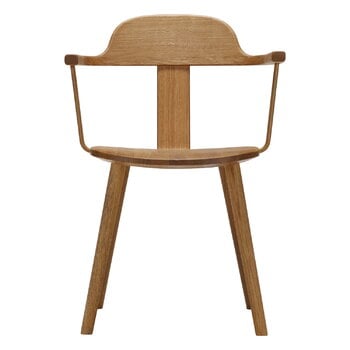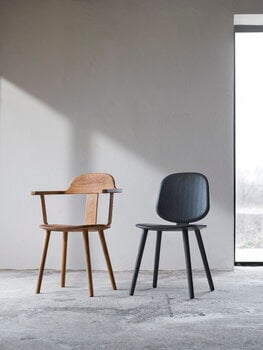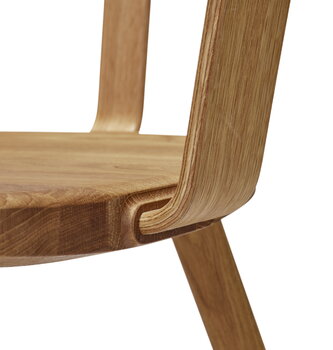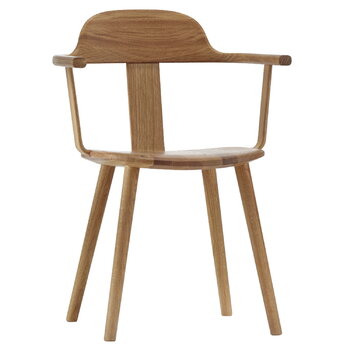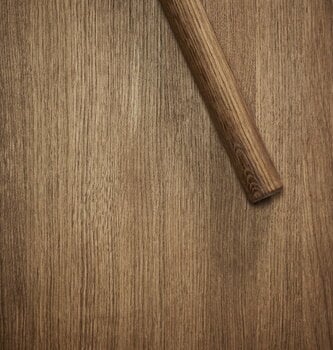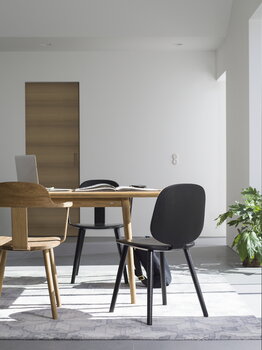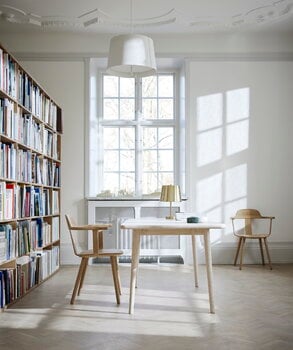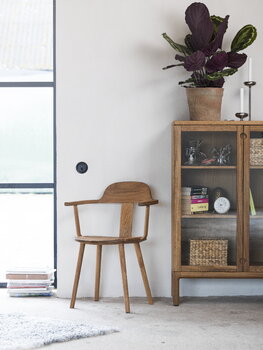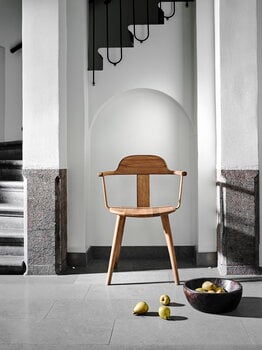Stolab's Sture is a minimalist armchair in oak, designed by Mathieu Gustafsson. Like other Stolab furniture, the Sture chair is manufactured in the company's own factory in Sweden.
Gustafsson sought inspiration for the chair’s design, combining both classic and modern features, from Stolab's long history as a manufacturer of wooden furniture. He wanted to utilize Stolab's know-how, but at the same time create his own version of the Swedish company's most classic product, the wooden chair. To be able to achieve this, he spent a lot of time honing the details of the chair to create a distinctive, modern and versatile chair made with modern manufacturing methods and, at the same time, with respect to Stolab’s traditions.
